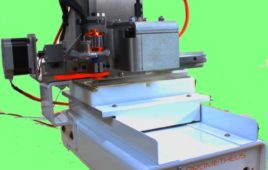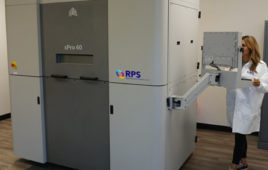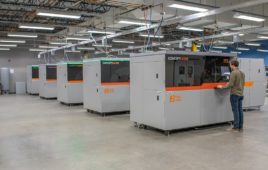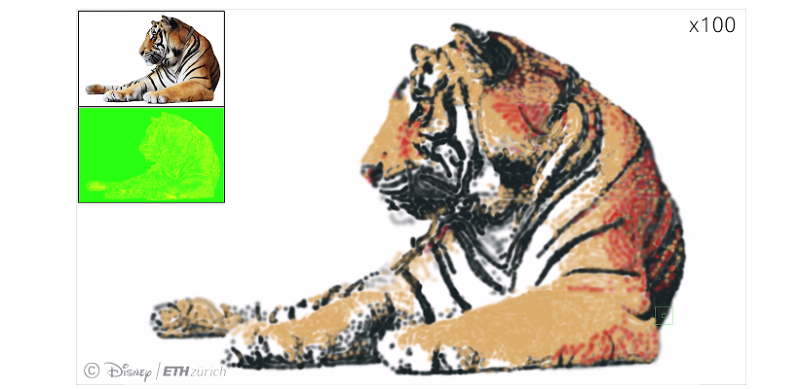
An original image, the feedback visualization that tells the spray can where to paint, and a finished drawing. Image credit: Dartmouth College
Dartmouth College is thinking big in terms of new ways to use “smart” devices. A computer science professor and researchers from ETH Zurich, Disney Research Zurich and Columbia University are working on a “smart” spray can that can automatically replicate photos in paint. It isn’t meant for creating unique art, instead copying a picture, but the researchers propose that it could be used in digital fabrication as well as in digital and visual arts.
“Typically, computationally-assisted painting methods are restricted to the computer,” said Dartmouth College Professor Wojciech Jarosz, who co-authored the paper on the subject. “In this research, we show that by combining computer graphics and computer vision techniques, we can bring such assistance technology to the physical world even for this very traditional painting medium, creating a somewhat unconventional form of digital fabrication.”
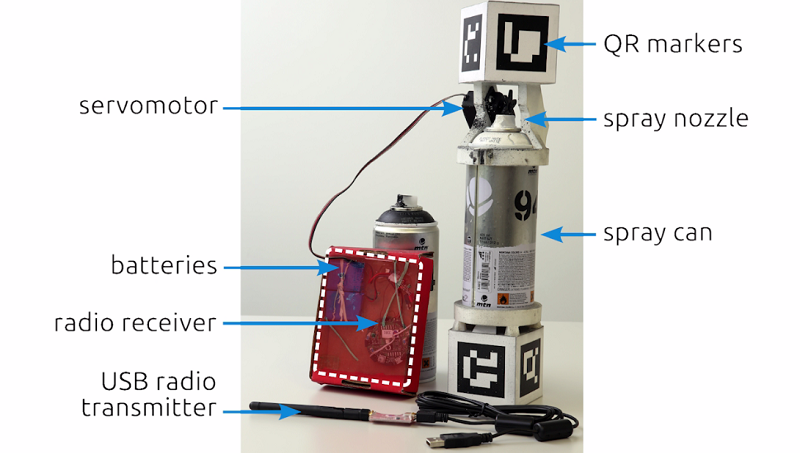
Image credit: Dartmouth College
He imagines that the automated technique will be able to help people who don’t necessarily see art as one of their strengths to complete large-scale art projects.
In order to do this, a spray can is networked to two webcams, which track the distance between the can and the canvas. A “feedback visualization” display on a separate screen shows the user where to paint. The prototype of the spray can is equipped with QR codes for tracking. The spray nozzle itself works with a small actuation device on a 3D-printed mount. The commands are transmitted from a real-time algorithm on the computer to the servo-motor, via radio.
Even though the graffiti is part of a research study, the team has had trouble finding large enough flat surfaces on which to actually practice it: the college forbid them from painting school buildings.
(Via Dartmouth College)
Filed Under: Rapid prototyping

